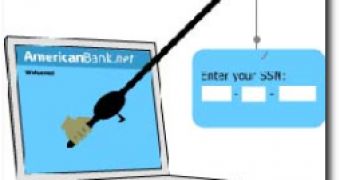Phishing attacks are more and more popular and tend to become a useful operation for all the internet users that are looking to earn money with ease by using illegal activities. A phishing attack is done through a website that is almost 100 percent similar to an official webpage used by customers to enter their credit card or bank information. This way, the attackers can obtain financial information directly from the clients of a specific company. Very often, the attackers send e-mail messages to customers to advise them that it's better to send their details again to avoid getting their account deleted.
At this time, there are a lot of applications that are meant to fight against this illegal activity. Although many clients are currently using this kind of software solutions, the number of phishing reports is increasing every day. The latest attack was reported in Sweden to the Nordea bank that was affected by several phishers and a Trojan that recorded all the information sent by the customers and redirected it to the hackers. It seems like almost ?900.000 were stolen from the accounts with more than 250 affected clients and 121 customers currently under investigation.
"Swedish police say they are still receiving reports of losses to the scam. Reports of phishing attacks against Nordea Sweden popped up as early as October 2005, but according to Computer Sweden the first successful attack took place in September 2006.
The Trojan is activated when customers enter their log-in details. An error message appears and the details are sent to the phishers in the US and Russia. In some cases large amounts of money were taken from the accounts. Nordea managed to cancel some of the transactions. The bank says it will compensate all victims of the attacks," The Register reported.

 14 DAY TRIAL //
14 DAY TRIAL //